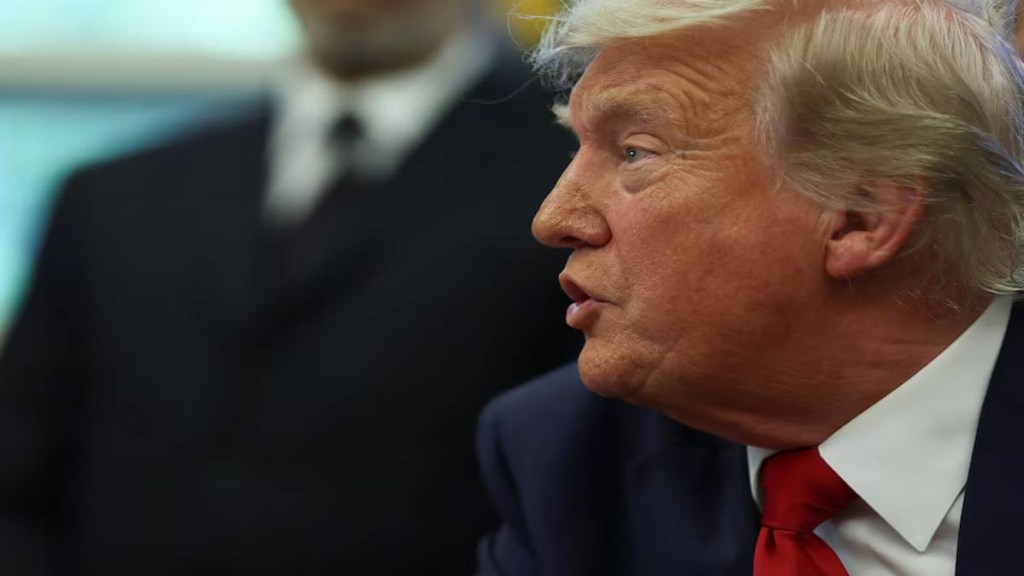The United States has been described in many ways, but no one in her wildest dreams could have thought of America being referred to as a “giant supermarket”. That’s precisely how Donald Trump described his country in an interview with the Time magazine, coinciding with his first 100 days in office in his second term. America, he said, is “the biggest department store in history. Everybody wants to come in and take from us… (but) they’re going to pay a price for taking our treasure, for taking our jobs, for doing all of these things”, Trump said, justifying the trade war against friends and foes alike. The US, he said, was losing $2 trillion a year on trade. It’s a different matter, however, that he has achieved precious little so far, except putting almost the entire world in chaos.
In the process, Trump and his team have ensured a flurry of executive orders and declarations (at 142, they are far more than any other US President in his first 100 days in office) and firing the starting gun on what has been a rapid and radical programme of change. And he has shown no sign of taking his foot off the pedal even as the world is grappling with the impact of reciprocal tariff, which has now been postponed to July. On other aspects, there has been minimal progress — he has failed to end the war in Ukraine, he has not annexed Greenland, he has failed to make Canada the 51st state of the US, and he has not been able to annul the constitutional guarantee of birthright citizenship.
The only area where he appears to have come up trumps is illegal immigration. There has indeed been a dramatic fall in the number of migrants crossing illegally into the US. However, the shrill tone of Trump’s speeches has ensured a decline in the number of overseas visitors to the US. There were 12% fewer arrivals in March than in the same month a year earlier. Deporting students and researchers isn’t a good idea, either. America has led the world in science, innovation, and industry precisely because it attracts the best people. A US that cuts itself off from the world will be one that is less vibrant, less understood, and less loved. The point, however, is that none of this is likely to matter to Trump’s core voter base who still trusts him despite the fall in approval ratings. Therein lies the danger. As and when he demits office (his wish of a third term is unlikely to materialise), Trump’s successors are quite likely to follow the same script of absurd rhetoric about immigrants, economically inept trade wars, and anti-democratic actions.
Where does India figure in all this? The country has adopted a sensible policy of staying out of the limelight and quietly stitching up a bilateral trade deal. While the US has an annual trade deficit of $45.6 billion with India and the country is one of the most vulnerable to reciprocal tariffs, there is optimism that India would be able to pre-empt such actions by lowering tariffs on a range of US imports. An increase in arms purchases from the US is likely to add ballast to the relationship — Trump or no Trump. A prudent shopper has to patiently wait for a good bargain season in the “giant department store”.

